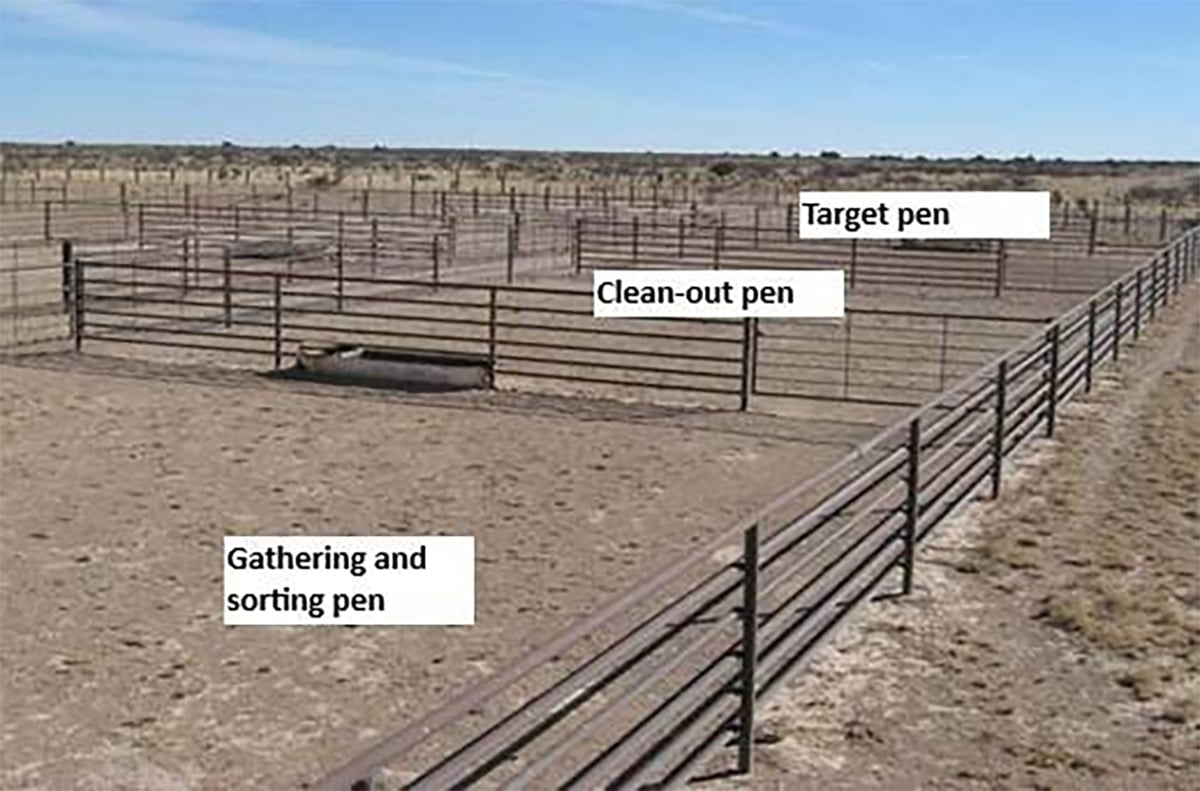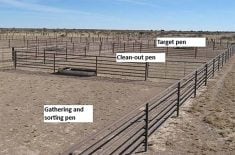CHEADLE, Alta. – Jessica Davis likes people to get down and dirty in their manure piles.
The manure management specialist from Colorado State University has been traveling Alberta advising the livestock industry about its growing piles of manure.
“You need to know your manure, up close and personal,” she said.
Sampling manure is a logical idea for Davis.
It is plant food and no farmer buys chemical fertilizer without knowing what it contains. Yet few people sample manure.
“You wouldn’t give a feed to your cattle without analyzing it first. The same things should go for your crops,” she said at a manure workshop at Cheadle, a small farming community east of Calgary.
Read Also

Teamwork and well-designed handling systems part of safely working cattle
When moving cattle, the safety of handlers, their team and their animals all boils down to three things: the cattle, the handling system and the behaviour of the team.
To get the best samples from manure piles she suggested using a post hole auger because it goes deep, producing a more consistent sample.
About 15 to 20 samples from all over the pile should be collected, then mixed and sent in a sealed plastic bag or bottle for sampling at a lab. Samples should be sent as soon as possible because manure is constantly changing.
Don’t use a glass jar because gases might build up and the jar will explode.
In a basic sample, a lab measures moisture, nitrogen, sulfur, potassium and sodium. In addition, ask for an electrical conductivity test to see how much salt is present. A more advanced test measures calcium, magnesium and ammonium. This test also calculates the total organic and inorganic nitrogen available.
Manure nitrogen consists of organic and inorganic nitrogen. Organic nitrogen isn’t readily taken up by the plants because it is released more slowly.
The inorganic nitrogens include nitrates and ammonium, which the plants can absorb. Nitrates are soluble and subject to leaching. About 35 percent of the total nitrogen in the manure will be available to plants within a year after application.
Phosphorus is also present in manure although it is not lost into the air as nitrogen is. It moves slowly so it leaches less than nitrates.
Soils have a large capacity to hold potassium and phosphorus but can be overloaded, which can reduce crop growth because of nutrient imbalances.















